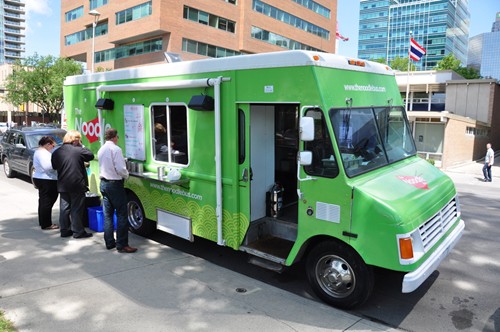
Experts pinpoint 2008 as the "unofficial onset of the food truck phenomenon," writes Stephanie Buck on Mashable. As Buck highlights from a handy infographic, in 2008 New York's Rickshaw Dumpling Bar and Los Angeles' Kogi BBQ began, thus igniting the media frenzy surrounding food trucks.
As Robert Loerzel explains in a Chicago Business article, the financial capital needed for a food truck is often more than entrepreneurs expect. "The budget for launching a food truck is a bit like a restaurant tab. When the bill arrives at the end of the meal, the number at the bottom is often bigger than you'd expected," he writes.
However, entrepreneurs can quickly make this up by offering high-quality food and effectively advertising their products to customers.
A critical component of a successful food truck business is its graphic design. Engaging truck decals can gain customers' attention, and an attractive design is one of the best marketing tools for food truck owners. "A food truck is a brand on wheels, and it needs a logo that will get people's attention—clearly explaining what sort of food the truck is selling," Loerzel affirms.
Richard Myrick, the author of Running a Food Truck for Dummies, delves deeper into effective design strategies for food truck owners, explaining the advantages of food truck wraps. A vehicle wrap for your food truck functions as "a mobile billboard," Myrick asserts. Working with a company that specializes in designing and installing vehicle wraps ensures that the final look will be one you're happy with.
If you have a food truck or are considering starting one, you'll need the assistance of a customer screen printing company. Truck decals and custom vehicle wraps enhance the look and appeal of your food truck to customers.